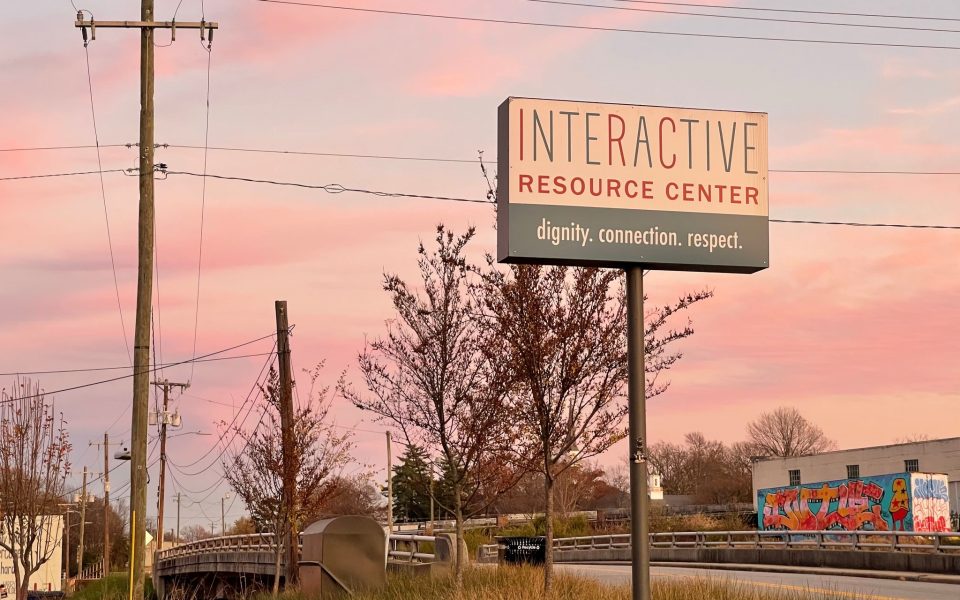After much back and forth, Greensboro’s homeless center — the Interactive Resource Center, also known as the IRC — will be staying open for now.
The move came after the organization’s board met on Thursday evening to reevaluate the center’s financial future after city leaders voted to postpone funding for the IRC on Tuesday during their city council meeting.
The IRC board voted to maintain 24/7 operations as a short-term plan until city councilmembers vote on funding Aug. 5, according to a press release sent on Thursday night. City leaders will be discussing IRC funding during a work session on July 25.
According to the press release, the future of the IRC’s ability to remain a 24/7 drop-in center “remains uncertain” without “robust city funding.”
According to the release, the IRC, the city and partner organizations have multiple meetings scheduled during the period leading up to the work session to “collaborate on solutions to the concerns raised at council meetings.”
Thursday’s board meeting comes after several months of criticism levied at the center by both city councilmembers and local business owners.
After transforming from a day center for Greensboro’s homeless population that was typically open from 8 a.m.-3 p.m. on weekdays, to a shelter that is open 24/7, downtown’s Interactive Resource Center became overwhelmed with growing numbers of clients, calls for service and complaints from nearby business owners about trash, vandalism and safety concerns.
During the 2023-24 fiscal year, the organization served 8,520 unhoused people. During the prior fiscal year, they served 5,677. The drop-in center provides showers, laundry, mail service and restroom facilities.
Local advocates have pushed back against the criticism, stating how the center is one of the only places for unhoused people to seek refuge and services day or night.
In a widely circulated petition to keep the IRC open, advocates state that if the IRC were to close, “the unhoused community population will continue to rise, crime in the area will again begin to skyrocket, and most importantly people will die.”
Since its opening in 2008, the organization has heavily relied on city and county funding to fuel their operations, and was slated to receive $300,000 from the city on Tuesday evening. However, city councilmembers opted to delay the vote after stating that the IRC had not followed through on submitting a “plan of action” to address “operational concerns” prior to receiving any additional funding, according to a Wednesday press release. The city stated that the IRC was asked to “provide the requested plan at other meetings” prior to Tuesday’s meeting but that the “information was not submitted.”
During Thursday’s board meeting, trustees reviewed a draft of a plan that will address safety and trash issues over 30, 60 and 90 days, according to the release. The IRC is set to submit plan documents to the city before July 23.
“The organization is also evaluating updated behavior protocols for guests who receive services at the city’s only low-barrier resource center,” the press release states.
“The IRC is at the ground level of need for those experiencing homelessness in Greensboro,” wrote IRC Executive Director Kristina Singleton.
Historically, the organization has offered low-barrier access to essential services, meaning that requirements for entry are limited or minimal.
“There is no current alternative to the resources we provide, and a reduction in services would be a significant loss for those who rely on our most basic fundamental services,” the release states.
Read past reporting on the IRC here.
All CityBeat reporting content is made possible by a grant from the NC Local News Lab Fund, available to republish for free by any news outlet who cares to use it. Learn More ↗
Republish this storyJoin the First Amendment Society, a membership that goes directly to funding TCB‘s newsroom.
We believe that reporting can save the world.
The TCB First Amendment Society recognizes the vital role of a free, unfettered press with a bundling of local experiences designed to build community, and unique engagements with our newsroom that will help you understand, and shape, local journalism’s critical role in uplifting the people in our cities.
All revenue goes directly into the newsroom as reporters’ salaries and freelance commissions.


Leave a Reply